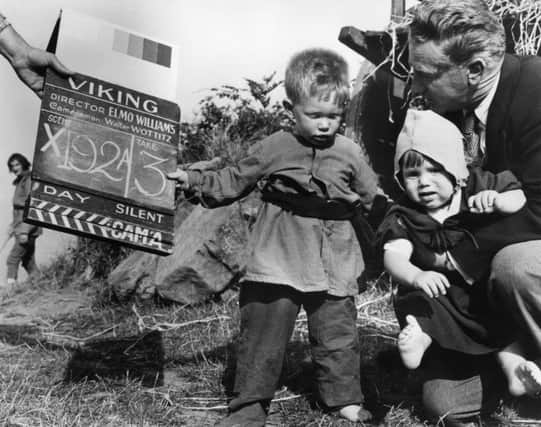Obituary: Elmo Williams, film editor and executive


Elmo Williams’s first experience of the American West was as an infant when his parents trekked across the country from Oklahoma to New Mexico, making part of the journey in a covered wagon, just like in the western movies.
By his mid-teens Williams’s parents were dead and he took a series of jobs to support his siblings. One job was driving across America to deliver cars, which is how he wound up in Los Angeles and met the film editor Merrill White, who hired him as his assistant. Williams became a top editor and won an Oscar, appropriately enough, for the 1952 western High Noon, which famously plays out in real time.
Advertisement
Hide AdAdvertisement
Hide AdWilliams’s death, at the age of 102, means that Olivia de Havilland is now believed to be the oldest living Oscar-winner. Williams was not the first editor on High Noon but producer Stanley Kramer thought it was a “mess” and was at loggerheads with director Fred Zinnemann when Williams got involved.
Williams recut it from scratch and created the famous wordless scene that splices together shots of Gary Cooper’s lawman writing his will, the terrified townsfolk in the church and saloon, the outlaws awaiting the arrival of their boss, the incoming train and the clock ticking down the final minutes till its arrival and the climactic showdown.
An Oscar for a classic western would seem to provide a neat symmetry to the story of the boy who headed west in a wagon half a century earlier, but Williams’s story was not over yet. He went on to become head of production at 20th Century-Fox during the 1970s.
Latterly he supported various charitable and community projects in the little town of Brookings, Oregon, to which he retired. One resident described him as selfless and another as “the kindest man I’ve ever met”.
But you do not get appointed to one of the most senior executive posts in a major Hollywood film studio without a certain ruthlessness, and Williams admitted to firing the legendary Japanese director Akira Kurosawa from the 1970 big-budget war film Tora! Tora! Tora! because he was taking too long.
He was born James Elmo Williams in 1913 in Lone Wolf, Oklahoma. After moving to New Mexico, his father worked the family homestead while his mother worked at an uncle’s store in a nearby town called Deadman. Williams’s father died when he was 11. His mother moved back to Oklahoma, but she died a few years later.
Merrill White was impressed with Williams’ efficiency and offered him the chance to accompany him to London as his assistant. He was still in his teens, he had no passport or even birth certificate and was desperately nervous about the move. Initially he worked as White’s personal assistant and driver, but he learned the business of editing from watching White at work.
Williams said: “One of the popular features on DVDs these days are the director’s cuts… In the days of the studio system the director would finish a film and go on to the next one. The film’s construction was left to the editor and producer.”
Advertisement
Hide AdAdvertisement
Hide AdThey set up an editing company together in London in the 1930s and within a few years Williams had risen to the rank of supervising editor on Sixty Glorious Years, with Anna Neagle as Queen Victoria.
During the Second World War he worked as an editor, producer and director on US Army training and information films alongside a certain Major Theodore Geisel, better known as Dr Seuss.
After the war Williams also worked as a producer and director in television on various programmes, including the Hopalong Cassidy western series, before saving the day on High Noon.
A couple of years later Williams received a second Oscar nomination for editing on 20,000 Leagues Under the Sea. After that he worked mainly as a producer and executive, though he did work uncredited on re-editing Cleopatra, which had had an original running time of five hours.
“Taylor had had this long speech after she picked up the snake. I told (studio boss Darryl) Zanuck: ‘For God’s sake, everybody in the world knows what happens when she picks up the snake… She’s walking around for about nine minutes spouting off her philosophy, and the picture just dies. So that was the first thing I took out.”
He and his wife Lorraine adopted three children. During his stint as head of production at 20th Century-Fox, the studio’s film The French Connection won the Oscar for best picture and Williams took the whole family to the ceremony.
He retired to Brookings in Oregon, where he got involved in various local projects.
He is survived by one of his adopted daughters Stacy Williams, who also became a film producer.